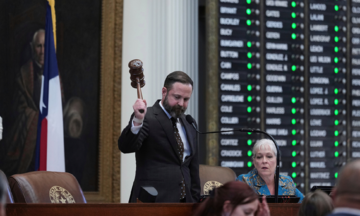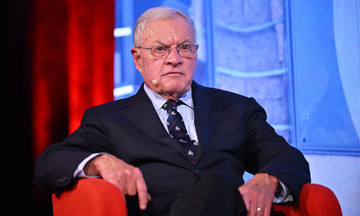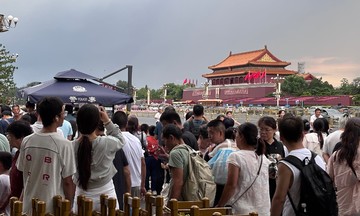In his nearly four decades leading Iran, Supreme Leader Ali Khamenei has weathered internal dissent, economic crises, and conflict. However, the unprecedented joint Israeli-American air campaign against Iran last month marks perhaps his greatest challenge yet.
The heavy losses Iran suffered during the 12-day conflict dealt a blow to Khamenei's standing and authority. The Islamic Revolutionary Guard Corps (IRGC), the key military force upholding the ideals of the Iranian Revolution, lost several high-ranking commanders to Israel's precision airstrikes.
Among the most significant losses was General Mohammad Bagheri, chief of the general staff of the armed forces and head of Iran's military command structure. Bagheri reported directly to Khamenei and played a crucial role in coordinating operations between the IRGC and the regular Iranian Armed Forces (Artesh).
Another major loss was General Gholam Ali Rashid, head of the Khatam al-Anbiya Central Headquarters. Before his death, Rashid was considered Iran's "wartime chief of staff" and one of Khamenei's closest military advisors.
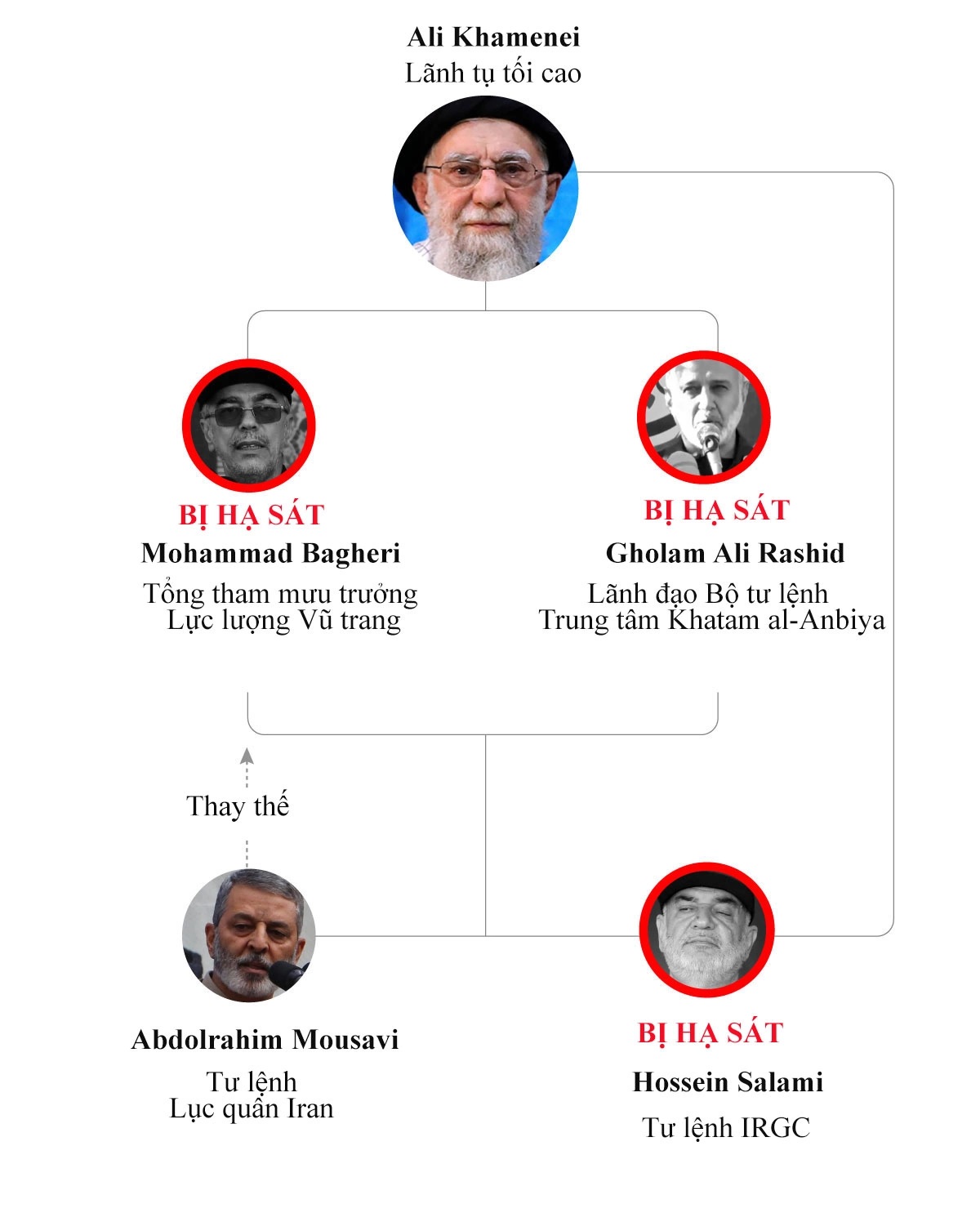 |
Supreme Leader Ali Khamenei and top officials in the Iranian armed forces. Graphics: DIA |
Key Iranian nuclear facilities, including Fordow, Natanz, and Isfahan, sustained heavy damage from the Israeli and American airstrikes. Several key scientists in Iran's nuclear program were also killed. Billions of USD invested in the nuclear program vanished in less than two weeks, dealing a further economic blow to Iran amid sanctions and soaring inflation.
Furthermore, Iran's proxy forces within its "Axis of Resistance," such as Hezbollah, Hamas, and the Houthis, were also significantly weakened following the Israeli and American attacks.
The intensity of the Israeli offensive led to Khamenei being relocated to a secret location under the protection of an elite guard unit, indicating a direct threat to his safety. He did not attend the funeral held for the 60 military commanders and nuclear scientists last week.
Days after the ceasefire took effect, the supreme leader addressed the nation in a video message. "President Trump has shown the truth that Americans are only satisfied when Iran completely surrenders," he said, referring to former US President Donald Trump.
Like Israel, Khamenei also declared victory, claiming Iran had defeated both Israel and the US. This comment drew a sharp rebuke from Trump.
"You are a man of faith and highly respected in your country. You must tell the truth," Trump stated, adding that Iran had been "badly beaten."
Having assumed power in 1989 after a devastating war with Iraq left Iran isolated, Khamenei faced the daunting task of rebuilding a fractured economy and society. He had to navigate internal dissent and rivalries among Iranian clerics while facing relentless international sanctions.
Over the decades, Khamenei has built a loyal support base and robust institutions to protect his power. However, he has never faced an assault of this magnitude from a leading military power, nor a direct warning of possible assassination from a US president.
Ali Vaez, director of the Iran Project at the International Crisis Group, suggests that Khamenei's doctrine for Iran rests on two pillars: projecting power in the Middle East through proxy groups within the "Axis of Resistance" and maintaining deterrence against adversaries with a massive ballistic missile arsenal.
"However, the first pillar is now significantly weakened, and the ballistic missile arsenal has also been substantially degraded by Israel," Vaez said.
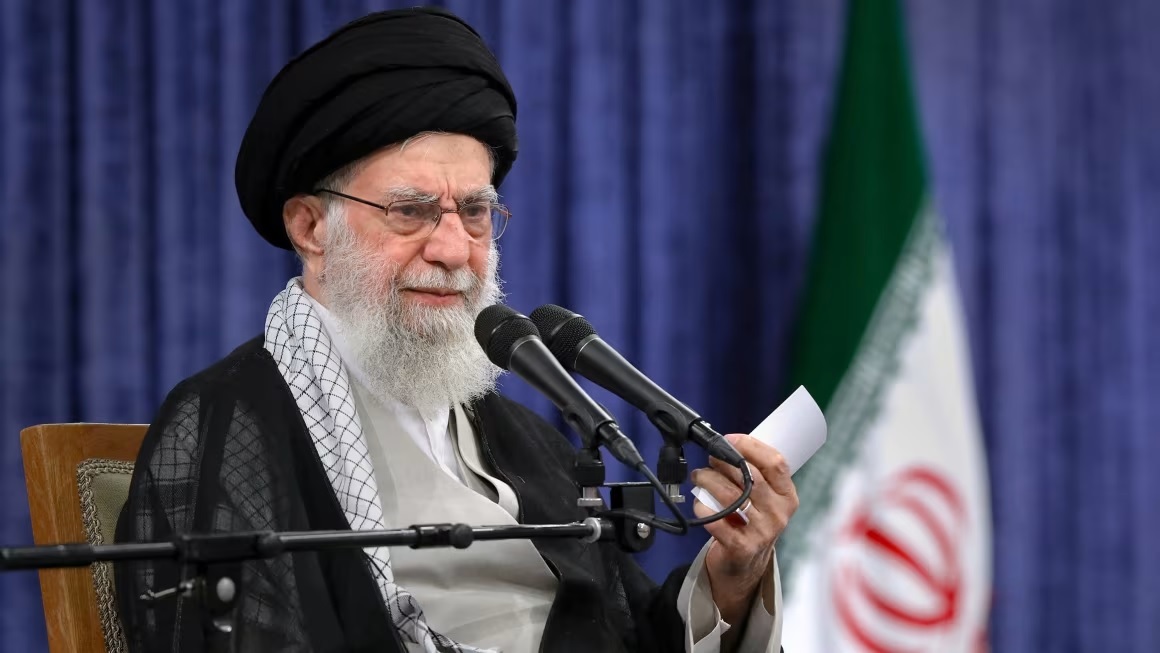 |
Iranian Supreme Leader Ali Khamenei in a meeting in Tehran on 20/5. Photo: WANA |
With Iran reeling from the attacks, Khamenei and the current government may resort to drastic measures to preserve the country's conservative ideology, according to observers. They face challenges both domestically and internationally.
"In the aftermath of the conflict, they will have to reassess their entire management system, and there is likely to be harsh criticism behind the scenes. Intelligence failures, the killing of high-ranking commanders, along with pre-existing challenges like a struggling economy and social discontent," Vaez commented.
These challenges may push Khamenei to seriously consider developing nuclear weapons as the ultimate protection for Iran, a move he previously forbade. The Iranian parliament last week signaled its intention to cease cooperation with the International Atomic Energy Agency (IAEA).
However, pursuing nuclear weapons would be a major reversal of Iran's public stance. Tehran has long maintained that its nuclear program is for peaceful purposes, while Israel asserted that its attack was aimed at preventing Iran from developing atomic weapons.
This could trigger strong reactions, particularly from the US. Trump warned of further bombing if Iran continues enriching uranium to alarming levels.
Another potential option for Khamenei is to capitalize on the rare unity within Iran following the Israeli attack to implement deeper reforms. In his recent speech, he alluded to this collective strength.
"Thank God, our nation of nearly 90 million people stood together, shoulder to shoulder, without any division about needs or goals," he said.
However, Vaez believes that Iran's conservative ideology may prevent Khamenei from fostering warmer relations with the region and pursuing a new agreement with the US.
Many Arab neighbors, who previously viewed Iran's policies as a threat, have recently chosen to improve relations with Tehran, expressing a desire for cooperation to avoid further costly conflicts.
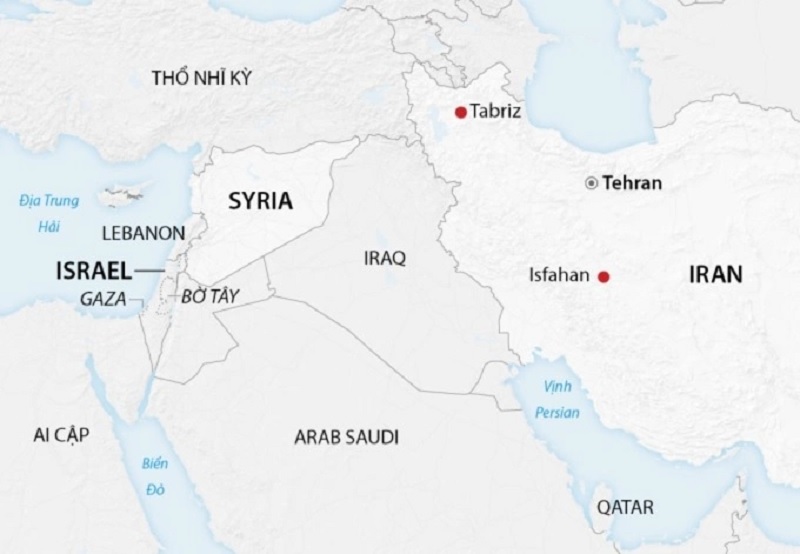 |
The Middle East. Graphics: CNN |
Distrust of the West has long been ingrained in the Iranian psyche, especially after Trump unilaterally withdrew from the 2018 nuclear deal and launched the unprecedented attack on Iran last month.
"If President Trump truly wants a deal, he should drop his disrespectful and unacceptable tone towards Supreme Leader Khamenei and stop hurting millions of his supporters," Iranian Foreign Minister Abbas Araghchi posted on social media on 27/6.
In his most recent address last week, Khamenei projected an image of resilient leadership after the conflict. He signaled to the US and Israel that mere military action cannot destroy his nation.
Thuy Lam (According to CNN, Newsweek)



